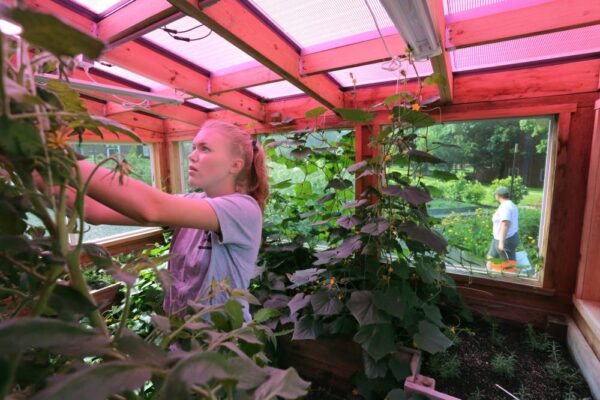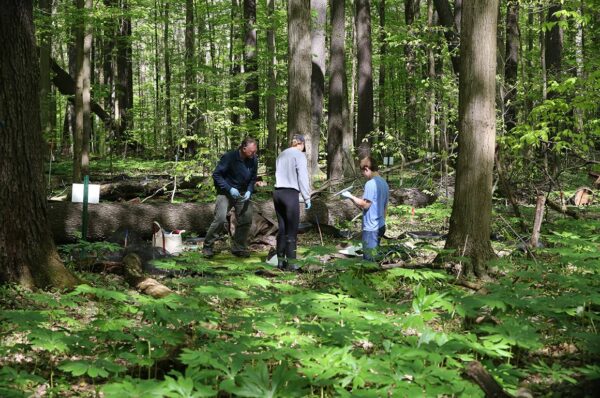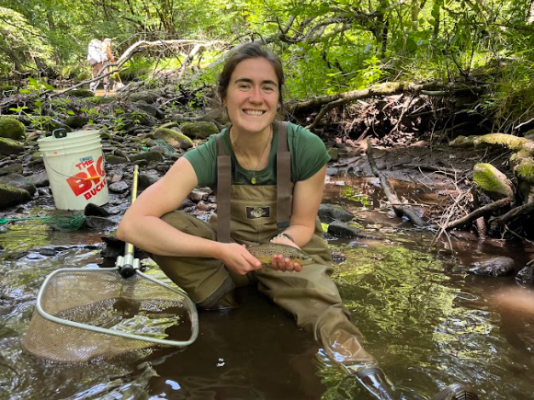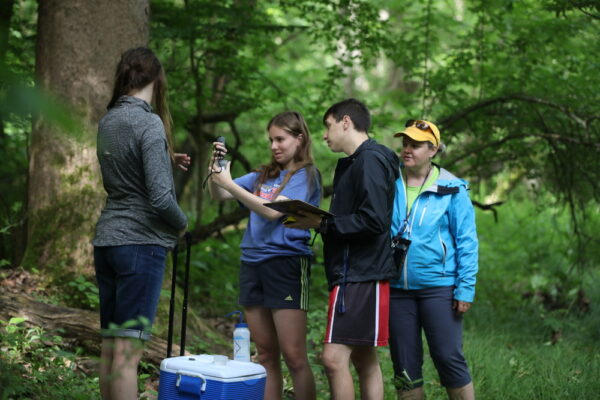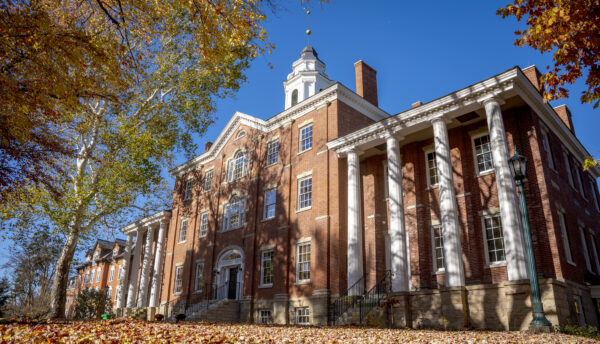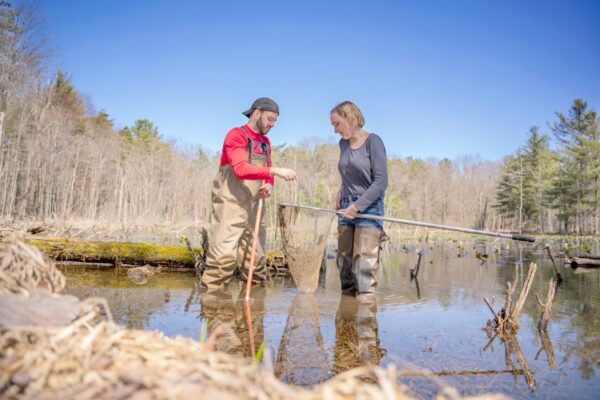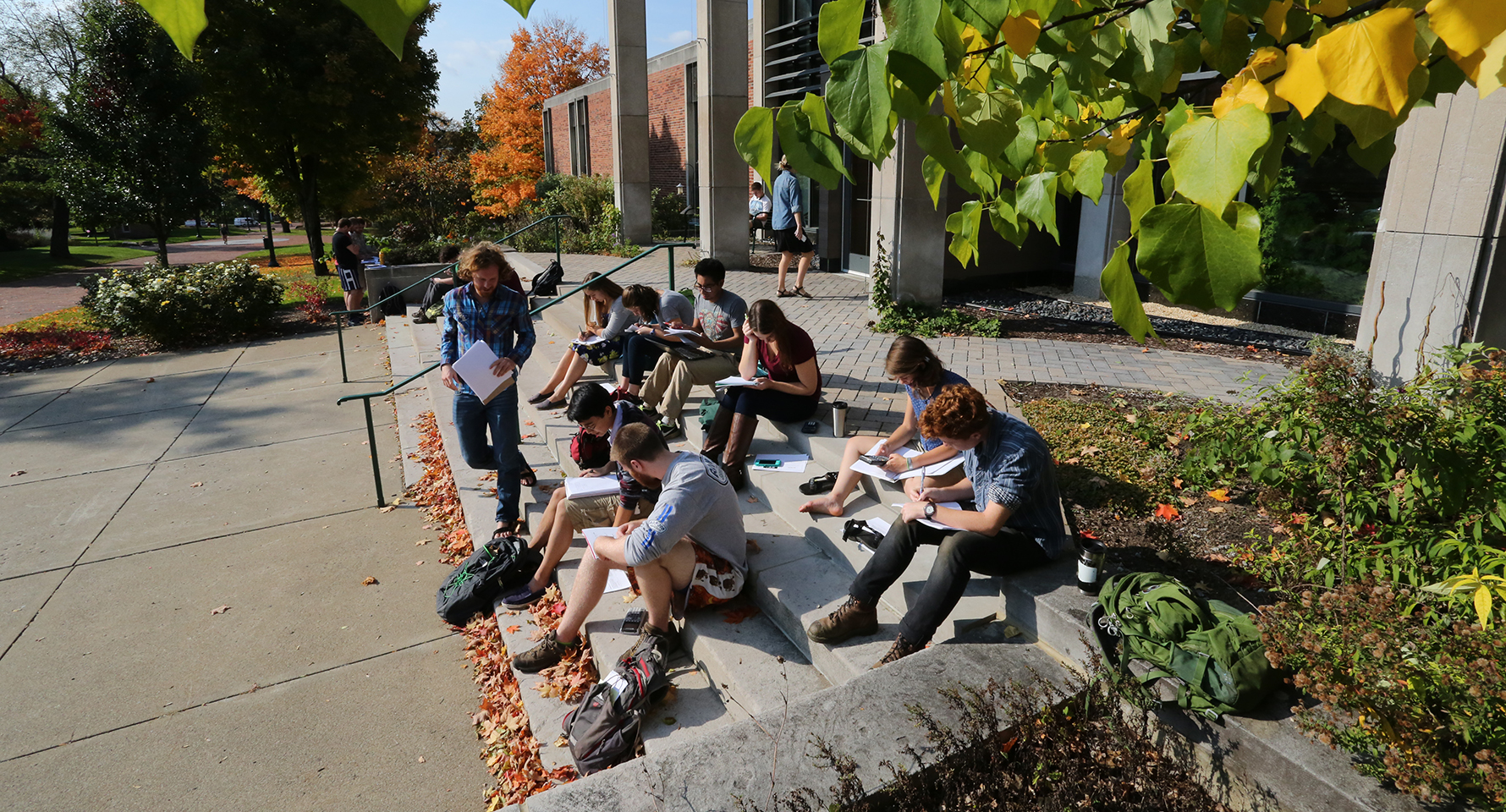
Environmental Science and Sustainability
Interdisciplinary Studies
Why Major in Environmental Science and Sustainability at Allegheny College
As an Environmental Science and Sustainability student, you’ll explore the natural world and the humans who call it home. You’ll gain insights and abilities to make the world more environmentally sound, equitable, just, and sustainable. You won’t just study the environment — you’ll improve it.
Unusual Combinations
Students often combine Environmental Science and Sustainability with:
Division
- Interdisciplinary Studies
Program Type
- Major
Number of Credits
60 for majorTo the Students of Northland College

Upon news of the school’s closing, Allegheny College is dedicated to making Northland College students’ transitions as smooth as possible for those looking to continue a top notch education in environmental science and beyond.
Begin the transfer process by applying today or email our transfer coordinator with any questions at apawling@allegheny.edu. Those transferring will be:
- Guaranteed a minimum of $36,000 in scholarships and
- Receive admission and financial aid decisions within two days of completing an application
Where Environmental Science and Sustainability Alumni Work Today
Indiana County Conservation District as Watershed Coordinator
AmeriCorp
Rebecca Caldwell ’24
Water Resource Specialist
Minnesota Watershed District
Danielle Studer ’21
The professors have an amazing breadth of knowledge about environmental topics. Each professor has a different area of expertise, but it is great how they can combine their knowledge to give their students a very well-rounded education.
Your Four-Year Journey
Year 1: Understanding
In your first year you will take Introduction to Environmental Science and discover that, at the college level, ESS is far more interdisciplinary than AP Environmental Science. The class covers agriculture, conservation, energy, and climate change but also teaches you to use art, psychology, ethics, politics, and economics to complement what you know about science. Life Cycle Analysis and patterns of consumption take center stage. Assignments include providing solutions to environmental challenges on campus and in the community.
Year 2: New Approaches
This is the year that ESS classes enhance your ability to think, read, speak, and write critically (ENVSC 270) and engage methods used by ESS professionals to solve environmental problems (ENVSC 210). You will begin to explore classes and internships to complement your ESS classes. Approximately one-half of classes for the ESS major are electives students choose after consulting with their faculty advisors.
Year 3: Delving Deeper
Year three is when you become an ESS professional. The Junior Seminar in Sustainable Development (ES 585) comes together with study abroad, internships, research opportunities, and classes from around the College and around the world as you develop into a global thinker and actor.
Year 4: The Comp
Time to select the project you care most about to spend a year on it with your faculty advisor. Almost every student reports back that their ESS Senior Comp was the most satisfying thing they did at Allegheny College. You can even show your Comp to prospective employers!
Featured Courses
Faculty and Staff
Email: dbyrnes@allegheny.edu
Phone: 814-332-5347
Assistant Professor
Ph.D., Ecology and Evolutionary Biology, Cornell University; B.S., Animal Behavior, Millersville University of Pennsylvania
Email: jhoutz@allegheny.edu
Phone: 814-332-2970
Featured News
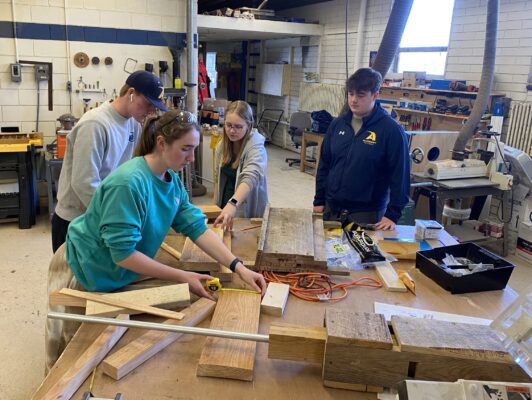
Building Homes For Bats On Campus
The project to build bat boxes is funded by the National Wildlife Federation Mutual of Omaha Wild Kingdom Grant. Its primary mission is to lure bats away from undesirable locations and to more desirable locations to enhance the population.


